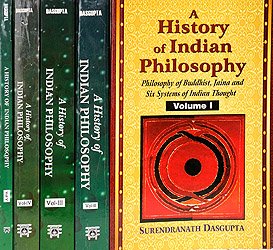A History of Indian Philosophy Volume 1
by Surendranath Dasgupta | 1922 | 212,082 words | ISBN-13: 9788120804081
This page describes the philosophy of the vedas and their antiquity: a concept having historical value dating from ancient India. This is the first part in the series called the “the vedas, brahmanas and their philosophy”, originally composed by Surendranath Dasgupta in the early 20th century.
Part 1 - The Vedas and their antiquity
The sacred books of India, the Vedas, are generally believed to be the earliest literary record of the Indo-European race. It is indeed difficult to say when the earliest portions of these compositions came into existence. Many shrewd guesses have been offered, but none of them can be proved to be incontestably true. Max Muller supposed the date to be 1200 B.C., Haug 2400 B.C. and Bāl Gaṅgādhar Tilak 4000 B.C. The ancient Hindus seldom kept any historical record of their literary, religious or political achievements. The Vedas were handed down from mouth to mouth from a period of unknown antiquity; and the Hindus generally believed that they were never composed by men. It was therefore generally supposed that either they were taught by God to the sages, or that they were of themselves revealed to the sages who were the “seers” (mantradraṣṭā) of the hymns. Thus we find that when some time had elapsed after the composition of the Vedas, people had come to look upon them not only as very old, but so old that they had, theoretically at least, no beginning in time, though they were believed to have been revealed at some unknown remote period at the beginning of each creation.
